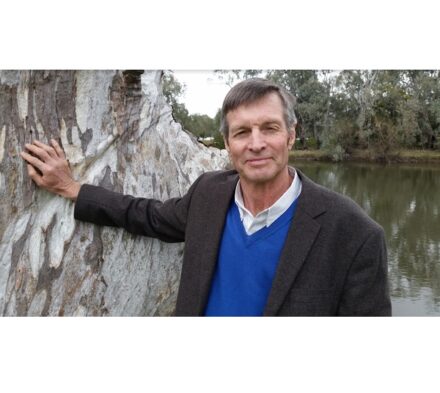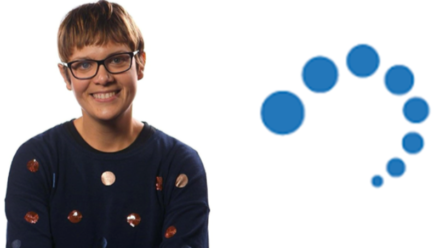Why did you choose to study science?
All my life I have been a science ‘nerd’ wandering in the bush. As a child and a teenager, I was especially interested in life sciences and applied biology and chemistry – I just didn’t know what those words meant. For me, agriculture was a natural extension of these sciences, especially as I also liked to be ‘outside’ and to use my hands. And because I had no assets to fall back onto, getting a teacher’s scholarship to do agricultural teaching was the best way for me to get into agriculture and a career in science.
Looking back now, what has been the best part of your career in #SciComm?
Definitely meeting new people and getting fresh ideas, in science and communication. Learning about email, the Internet and Content Management Systems were (at the time) great fun and very stimulating, especially when you floated challenging ideas and suggestions with managers and directors. That was when I learned most about how to manage people!
Where has your career led you?
From high school I started my first university degree in agriculture teaching at UNE at Armidale, and finished it in 1980. I was lucky enough to land a teaching job in Western Australia in what is arguably the best agricultural education system for senior high school students in Australia. It was a blast living all over southern WA in the 1980s – it was a growing place!
I was first exposed to #scicomms soon after starting teaching – let’s face it, you need to communicate to teach. I was working with media from the early stages of my teaching career, especially as I started to climb the Education Department ‘pecking order’. One of my early challenges was to teach ‘computers in ag’ in the early years of Commodores and Apples. I had to build the course from scratch (it was 1983), and learn how to run them at the same time! I have been looking at screens ever since while adding ‘IT repairs and maintenance’ to my skillset.
Then seven years living in the Pacific Islands widened my experience in communicating across cultures, languages and economic boundaries. In this time, I had two regional jobs: firstly in agricultural extension, then environmental communication. Here I developed a keen sense for networking and talking in various face-to-face and online forums, as this is the way you do business in the Pacific. During this time, I came across satellite radio, ‘electronic mail’ and this mystical ‘Internet’ thing (it was the early 90s).
On returning to Australia, I settled with my growing family into a (sort of) sedentary life in the media team of a local university in regional Australia. This posed a number of communication challenges as I worked in a dispersed team for the next 30 years: the closest my boss ever got to me was 150km, and we met in person once a year at the most! I wrote and promoted hundreds of research stories, particularly around science and education, with the help of this ‘Internet’ thingyme. I built and maintained the university’s first news website, and I finished a Masters and a PhD part-time.
What excites you most about your work?
The stimulation and search for new ideas are still there, and this is no better time. In the past 18 months, I have thoroughly enjoyed my change in work direction, establishing my home-based business as The Comms Doctor. I now pick the #scicomms jobs I want to do, usually based on the ‘fun factor’, and I also do some social research on collaborating in teams, which also is high in ‘fun’.
The pandemic has just focussed me a little more on what I can do online from home. My big challenge last year was to teach how to do social research online, including class exercises using Zoom and agriculture students doing interviews with each other from the middle of rural Australia at harvest time.
What advice do you have for anyone considering a career in #SciComm?
Be prepared to change and learn – constantly. Don’t get set in your ways, and be open to challenges and fresh ideas. One of the best conversations in my professional life was winding my way up the Mekong River to the Angkor Wat in Cambodia – I chatted for 4 hours with a wise 74-year-old man on the roof of an ancient Rhine tourist ferry about life working overseas and across cultures. He was an incredible, enthusiastic, inquisitive, worldly person who gave me some incredible insights into and stories about communication – and he was someone I just met on the boat …
What are some of the greatest challenges that you’ve overcome in your #SciComms career?
I think maintaining relations with team colleagues over 1000s of kilometres is an incredible challenge, particularly if your organisation believes you can do everything ‘online’, and so you don’t need to meet face-to-face. You need to build trust and relationships to have good communication, and I believe you can’t do that – especially when you need to work as a close work team – until you meet face-to-face.
Now that is a challenge during a pandemic, but I believe a little creative thinking, flexibility, patience and ability to see and take opportunities can overcome these challenges.
Wes Ward
The Comms Doctor® and
Adjunct research fellow with CSU’s Institute for Land, Water and Society


